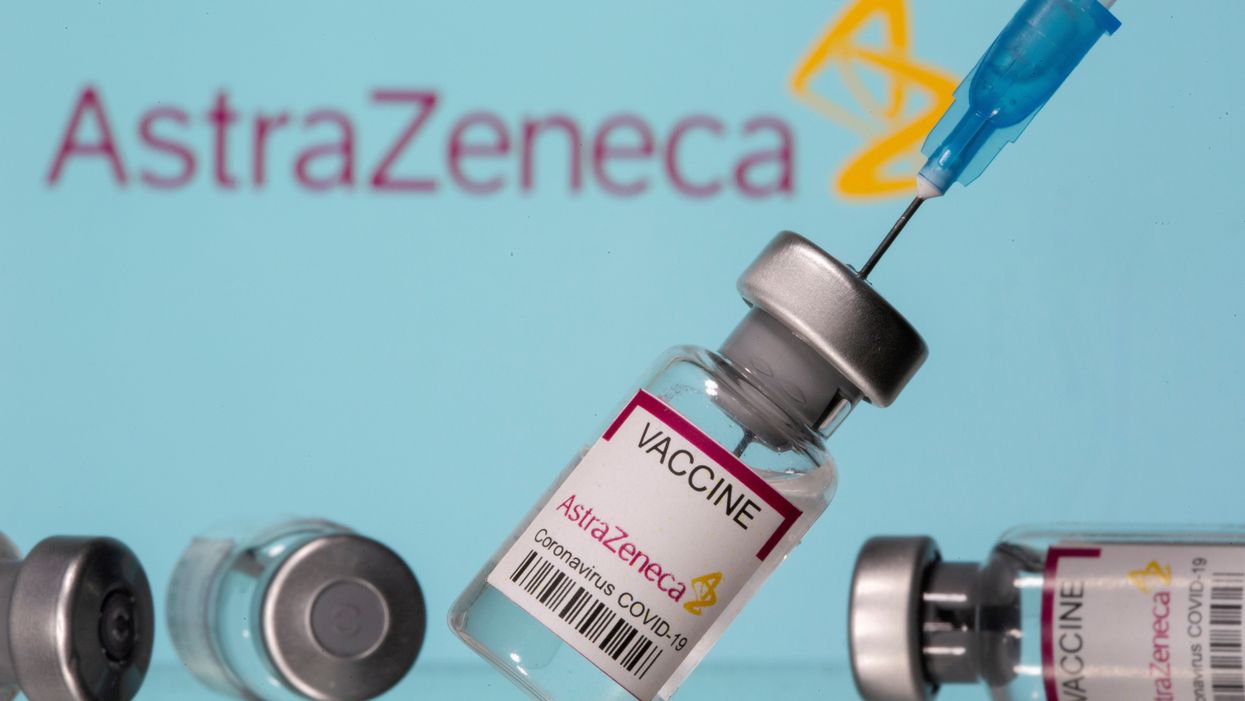
If you’re still waiting for your vaccine, you’ve likely seen swirling news reports about the Oxford-AstraZeneca vaccine and some very, very rare side effects.
Different countries have taken different stances, and the medical picture in the UK has been evolving. In short, things are pretty confusing.
Now, young people under the age of 30 in the UK will be offered an alternative to the vaccine as evidence emerges of a link between the jab and extremely rare blood clots.
When the UK’s vaccine rollout is widened to the rest of the population, healthy adults aged between 18 and 29 who have no underlying health conditions will be offered an alternative vaccine, where available.
Both Prime Minister Boris Johnson and opposition leader Sir Kier Starmer say they’ve full confidence in the vaccine.
The UK medicines regulator said there had been 79 cases of blood clots associated with low platelet cells in the blood, a condition known as thrombocytopenia.
Here’s a timeline of how we reached this point - from Germany sounding the alarm in January to UK government guidance today.
January 28, 2021: Germany’s vaccine committee issues a draft recommendation that the AstraZeneca vaccine should only be administered to those under 65, “on the basis of currently available data on the occurrence of rare, but very serious thrombosis related side-effects”.
They also cited insufficient data on the impact of the vaccine on older people.
January 29, 2021: The European Medicines Agency (EMA) recommends that the AstraZeneca vaccine is authorised for use in the European Union for people aged 18 or over.
In a statement, the EMA said: “Combined results from 4 clinical trials in the United Kingdom, Brazil and South Africa showed that COVID-19 Vaccine AstraZeneca was safe and effective at preventing COVID-19 in people from 18 years of age. These studies involved around 24,000 people altogether.
“The safety of the vaccine has been demonstrated across the four studies … Most of the participants in these studies were between 18 and 55 years old.”
They went on to add that while there is “not yet” enough data about those over 55, “protection is expected”.
February 15, 2021: The University of Oxford announces that it is to begin a trial of its COVID-19 vaccine on children, with 240 out of 300 volunteers receiving the jab (the rest will receive a ‘control’ vaccine, which is the meningitis vaccine).
“While most children are relatively unaffected by coronavirus and are unlikely to become unwell with the infection, it is important to establish the safety and immune response to the vaccine in children and young people as some children may benefit from vaccination.
“These new trials will extend our understanding of control of SARS-CoV2 to younger age groups,” said Andrew Pollard, chief investigator on the Oxford vaccine trial.
March 4, 2021: Germany’s vaccine committee reverses its stance on the AstraZeneca vaccine, saying that it can now be used in those over 65.
Jens Spahn, the country’s health minister, said: “The new data also shows that the vaccine is even more effective when the first and second jabs are administered 12 weeks apart.”
March 11, 2021: Due to reports of people experiencing severe blood clots upon vaccination, Denmark temporarily suspends rollout of the vaccine.
“Right now we need all the vaccines we can get. Therefore, putting one of the vaccines on pause is not an easy decision,” said Søren Brostrøm, director of the National Board of Health, in a statement. “But precisely because we vaccinate so many, we also need to respond with timely care when there is knowledge of possible serious side effects. We need to clarify this before we can continue to use the vaccine from AstraZeneca.”
As of now, there is no definitive link found between the incidents and the vaccine, but the Danish Health and Medicines Authority has issued the precautionary measure for the next two weeks.
March 16, 2021: As a result of a small number of blood clot concerns, Germany, France and Italy stop AZ rollout. Meanwhile, Thailand moves forward and authorises the vaccine. During a nationally televised news conference, Spain’s Health Minister Carolina Darias said the country will stop using the vaccine for two weeks.
Darias referred to the halt as a “temporary and precautionary” suspension, “until the risks can be evaluated by the European Medicines Agency.”
In addition, French President Emmanuel Macron commented on the suspension of the vaccine as well.
“We have decided to suspend the use of AstraZeneca as a precautionary measure and are hoping to resume it quickly if the EMA’s advice allows it,” Macron said during a news conference.
March 18, 2021: The European Medicines Agency (EMA) concludes its preliminary review, and finds “the vaccine is not associated with an increase in the overall risk of blood clots.” In addition, The Committee’s experts cited only 7 cases of blood clots in multiple blood vessels (disseminated intravascular coagulation, DIC) and 18 cases of CVST.
While a causal link with the vaccine is not proven, The Committee agrees it’s possible and deserves further analysis.
March 23, 2021: The National Institute of Allergy and Infectious Diseases (NIAID) issues a statement warning that the vaccine may have included outdated information from its clinical trial, which may have contributed to an incomplete view of the efficacy data.
The Data and Safety Monitoring Board (DSMB) at The National Institutes of Health (NIH) urged the company to review their data to ensure the most accurate, up-to-date efficacy data be made public as quickly as possible.
Upon reviewing their preliminary assessment of the primary analysis, AZ discovered their results were consistent with the initial analysis. They are currently in the process of reviewing their statistical analysis.
March 25, 2021: AZ releases updated results from U.S. clinical trials and finds a 75% efficacy rate against symptomatic Covid-19 cases. In addition, the new data discovered a 100% efficacy rate against severe and critical cases that led to hospitalizations. The data also found an 85% efficacy rate against symptomatic Covid-19 cases in participates aged 65 years and over.
“The vaccine was well tolerated, and no safety concerns related to the vaccine were identified,” AZ stated in the statement.
March 30, 2021: Cities throughout Germany, including Berlin and Munich, suspend distribution of the vaccine for people below 60-years-old, over reports of blood clots. The decision was made as a precaution after the country’s medical regulator reported 31 cases of rare blood clots in people who had recently received the vaccine, Berlin’s top health official, Dilek Kalayci said.
Nine people out of those 31 cases died.
In addition, Canada also suspended shots for individuals under the age of 55, over concerns it may be linked to rare blood clots.
March 31, 2021: EMA issues another review of rare blood clots associated with low numbers of platelets, in people who have received the vaccine. A range of independent external experts discussed whether underlying risk factors were identified, as well as additional data needed to further characterize the potential risk.
As of now, the review has not identified age, gender or a previous medical history of clotting disorders to be linked to these specific risk factors.
April 6, 2021: Shots given to children are halted after the UK’s medicines regulator monitors blood clot link found in adults. While no safety concerns were discovered with the trial itself, scientists are awaiting further information.
“Whilst there are no safety concerns in the paediatric clinical trial, we await additional information from the MHRA on its review of rare cases of thrombosis/thrombocytopaenia that have been reported in adults, before giving any further vaccinations in the trial,” Professor Andrew Pollard from the University of Oxford told the BBC
April 7, 2021: The Medicines and Healthcare products Regulatory Agency (MHRA) issues new advice, after concluding a possible link between AZ vaccine and extremely rare, unlikely to occur blood clots. Although the company concluded evidence of a link with the AstraZeneca vaccine is strong, additional work is still needed.
Data suggests there is slightly higher reports in young adult age groups, which the MHRA advises should be taken into account when considering the vaccine, and alternatives should be offered to under-30s where possible.












